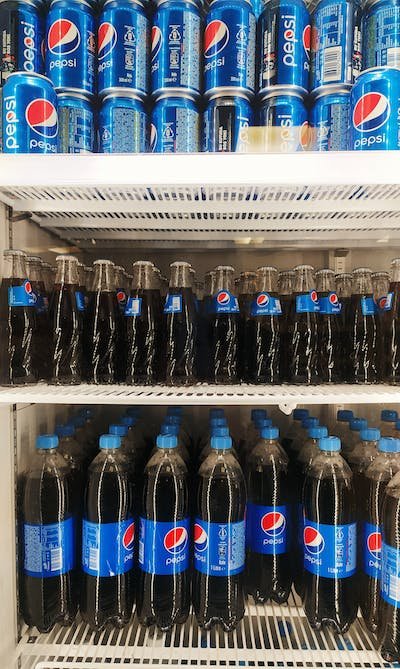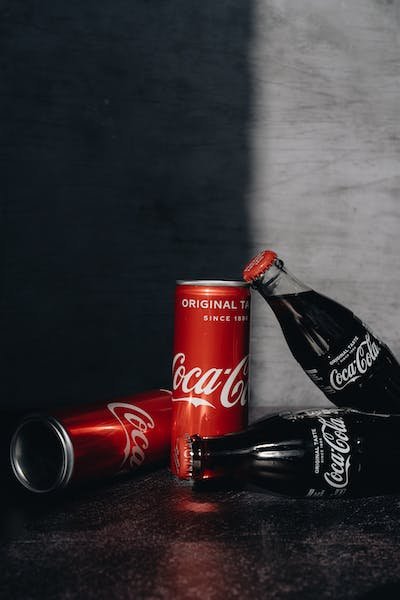Be Careful of CARBONATED DRINKS!!!
With so much dominance science and technology have caused to our life is astonishing. The rise of carbonated drink and the level it is consumed is what is worth talking about. I have been in that shoe before and I can testify that carbonated drinks can be tempting especially if you grow up loving sugary stuff.
Carbonated drinks, also known as soda, pop, or soft drinks, are a popular beverage enjoyed by people of all ages. They are made by dissolving carbon dioxide gas (CO2) under high pressure into water. When the pressure is released, the CO2 comes out of the solution in the form of bubbles, giving the drink its characteristic fizz. It will shock you just as it shocked me at first that the majority of people consuming carbonated drink does not even know the history behind it.
Well to my little understanding and research, I have come to discover that the history of carbonated drinks can be traced back to natural mineral springs, where carbonation occurred naturally. Ancient civilizations, including the Greeks and Romans, were aware of the effervescent qualities of certain waters.
These natural carbonated waters were believed to have medicinal properties, and people frequented these springs to benefit from the perceived health advantages.

The Science Behind the Fizz

One of the things that gives satisfaction when you consume carbonated drink apart from the taste many of us are associated with is also the Fizz. The science behind the fizz operates in a way that Carbonated drinks owe their fizz to the dissolved carbon dioxide gas (CO2) in the liquid.
Now this process of carbonation begins with dissolving CO2 under high pressure into cold water. When the pressure is released, the CO2 is released from the liquid in the form of bubbles. This process is what gives carbonated drinks their characteristic effervescence. The fizz plays a significant role in enhancing the drinking experience.
It stimulates our taste buds, creating a tingling sensation that complements the beverage's flavour. Moreover, carbonation can also serve as a preservative, extending the shelf life of carbonated drinks by inhibiting the growth of bacteria.

Components of Carbonated Drinks
Carbonated drinks come in a wide variety of flavours, and the ingredients used can vary significantly between brands and types. The components and what it is made up of at the end of the day constitute how appealing the carbonated drink will be. However, there are some common components:
- Carbonated water: The base of all carbonated drinks is carbonated water, which provides the fizz.
- Sweeteners: Sugar or artificial sweeteners are added to impart sweetness to the drink. The type and quantity of sweeteners can have a significant impact on the beverage's taste and calorie content.
- Flavorings: Natural or artificial flavourings are used to create the distinctive taste of each carbonated drink, ranging from cola and citrus to root beer and ginger ale.
- Acidulants: Citric acid and phosphoric acid are often added to give carbonated drinks their characteristic tartness.
- Preservatives and stabilizers: These are used to extend the shelf life of carbonated drinks and maintain their quality over time.

- Carbonated drinks are enjoyed by many people, but they have also been criticized for their potential health and environmental impacts.

Health Impact
This is the most important part I would love every one of us to pay attention to whether you are a chronic lover of carbonated drinks or you rarely drink it. One of the main concerns about carbonated drinks is their sugar content. Many carbonated drinks are high in added sugars, which can contribute to excessive calorie intake and an increased risk of obesity, type 2 diabetes, and dental problems.
The acidity of carbonated drinks is another potential health concern. The high acidity of these drinks can erode tooth enamel over time, leading to dental cavities and tooth sensitivity.
Some carbonated drinks also contain caffeine and artificial additives, which may have negative health effects. Caffeine can increase heart rate and blood pressure, and artificial additives have been linked to a variety of health problems, including cancer and reproductive problems.

Environmental Impact

I would like to digress a little bit to also talk about the environmental impact of carbonated drinks. Beyond health considerations, carbonated drinks also have an environmental impact.
The production and consumption of these beverages contribute to several environmental challenges:
- Packaging waste: The majority of carbonated drinks are sold in single-use plastic bottles or aluminium cans, which contribute to plastic pollution and resource depletion.
- Energy consumption: The production, transportation, and refrigeration of carbonated drinks require significant energy inputs, contributing to greenhouse gas emissions.
- Water usage: The manufacturing process for carbonated drinks involves a substantial amount of water, exacerbating concerns in water-scarce regions.

Conclusion
Carbonated drinks are a popular beverage with a long history. However, they also have some potential health and environmental impacts. It is important to be aware of these risks and to make informed choices about how often and in what quantities we consume these beverages.
Here are some tips for reducing the health and environmental impacts of carbonated drinks:
Choose low-sugar or sugar-free options.
Limit your intake of carbonated drinks.
Recycle or compost the packaging of carbonated drinks.
Choose brands that are committed to reducing their environmental impact.
By making these choices, we can help to reduce the negative impacts of carbonated drinks on our health and the planet.
Congratulations @biyimi! You have completed the following achievement on the Hive blockchain And have been rewarded with New badge(s)
Your next target is to reach 2500 replies.
You can view your badges on your board and compare yourself to others in the Ranking
If you no longer want to receive notifications, reply to this comment with the word
STOPCheck out our last posts:
Mineral waters are generally seen as beneficial.
The problem with mosth sodas lies with the sugar, artificial colors and some problematic ingredients ... not with the carbonation.
Most artificial sugars have bad health effects.
Replacing soda with processed apple juice won't have much health benefits as they are likely to contain the same amount of sugar (the sugar in the juice in the apple juice is HFCS used in soda.)
This video talks about benefits of carbonated water:
!BEER
Yay! 🤗
Your content has been boosted with Ecency Points, by @biyimi.
Use Ecency daily to boost your growth on platform!
Support Ecency
Vote for new Proposal
Delegate HP and earn more
Thanks for your contribution to the STEMsocial community. Feel free to join us on discord to get to know the rest of us!
Please consider delegating to the @stemsocial account (85% of the curation rewards are returned).
Thanks for including @stemsocial as a beneficiary, which gives you stronger support.
View or trade
BEER.Hey @biyimi, here is a little bit of
BEERfrom @irivers for you. Enjoy it!We love your support by voting @detlev.witness on HIVE .